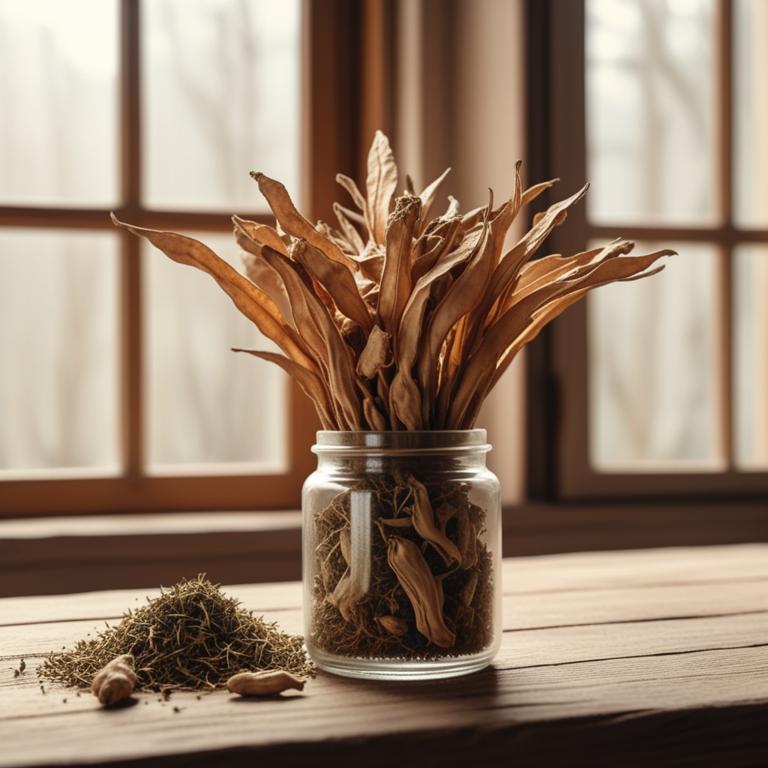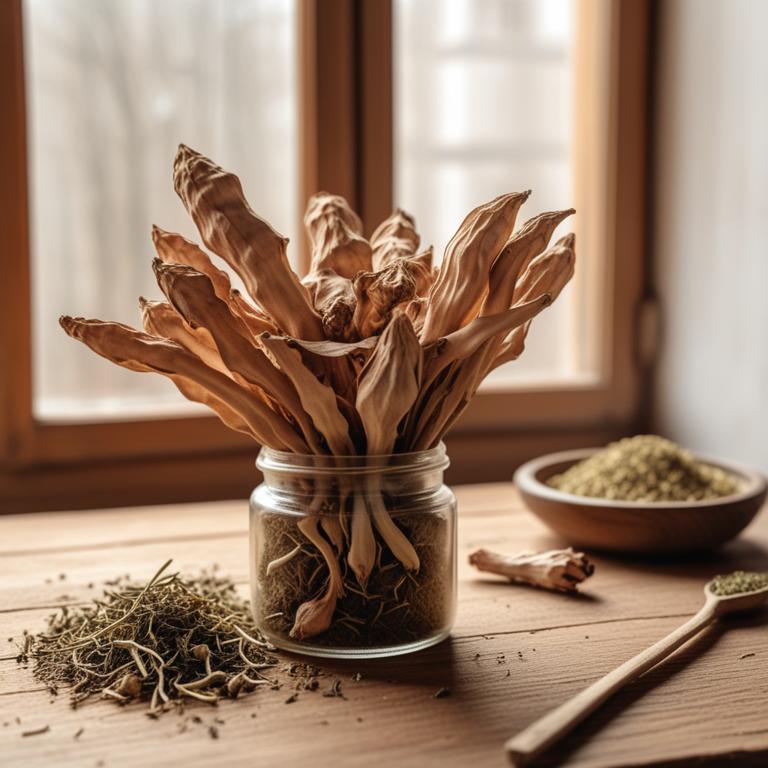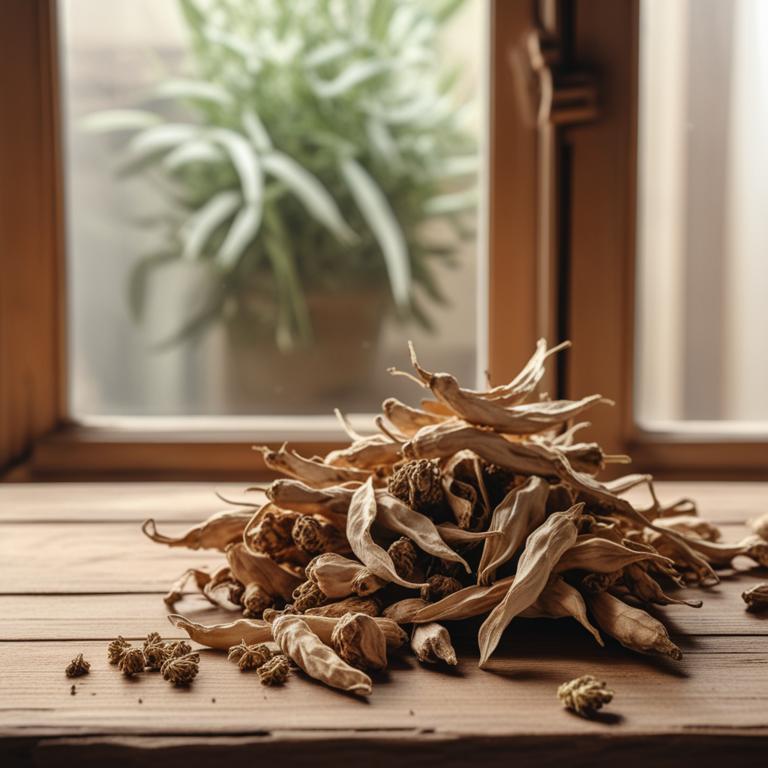Updated: Dec 1, 2024
Irritable Bowel Syndrome: Understanding the Causes and Using Medicinal Herbs for Relief

Irritable bowel syndrome, or IBS, is a condition that affects millions of people worldwide.
It causes stomach pain, bloating, constipation, and diarrhea, making everyday life difficult. People with IBS often struggle with anxiety and stress, which can worsen symptoms. The exact cause of IBS is unknown, but it's thought to be related to changes in the gut, hormonal imbalances, and stress. Herbal remedies have been used for centuries to help alleviate IBS symptoms. Certain herbs have anti-inflammatory properties, which can soothe the digestive tract and reduce inflammation.
Peppermint, for example, is known for its calming effects on the stomach and can help ease cramps and bloating. Ginger is another popular herb used to ease nausea and digestive discomfort. Fennel seeds and licorice root have also been traditionally used to calm the gut and reduce inflammation. To use these herbs, people with IBS can try drinking teas made from dried peppermint leaves, ginger root, or fennel seeds. Some herbal supplements, like capsules or tablets, can also be taken to provide a concentrated dose of the active ingredients. Additionally, herbal infusions like peppermint tea or ginger tea can be taken before meals to help ease digestion.
While these remedies may not cure IBS, they can provide relief from symptoms and improve quality of life.
Table of Contents
- What causes irritable bowel syndrome to occur?
- What benefits can be gained from using herbs for irritable bowel syndrome?
- What are the primary natural remedies for irritable bowel syndrome?
- What are the popular herbal concoctions used to soothe symptoms of irritable bowel syndrome?
- What herbs are best avoided by those with irritable bowel syndrome?
- FAQ
What causes irritable bowel syndrome to occur?
The main causes of irritable bowel syndrome are a combination of several factors, which can be different for each person.
One of the main causes is Food Allergy, where the body mistakenly identifies certain foods as a threat, triggering an immune response that can cause symptoms like bloating, cramps, and diarrhea. Another cause is Food Intolerance, where the body has trouble digesting certain foods, leading to uncomfortable symptoms like gas, constipation, or diarrhea.
Stress is also a major contributor, as it can slow down digestion, cause muscle contractions in the intestines, and increase inflammation in the gut. Additionally, an imbalance of Gut Bacteria, also known as dysbiosis, can disrupt the natural balance of the gut and lead to symptoms like abdominal pain, bloating, and changes in bowel movements.
This imbalance can be caused by factors like antibiotic use, poor diet, or other medical conditions.
What benefits can be gained from using herbs for irritable bowel syndrome?
Using herbs for irritable bowel syndrome can bring relief to people who suffer from this condition.
One of the main benefits of using these herbs is that they can help to calm the digestive system and reduce inflammation, which can cause pain and discomfort. They can also help to regulate bowel movements, making it easier to go to the bathroom and preventing constipation or diarrhea.
In addition, these herbs can help to soothe the stomach and reduce nausea, which can be a major issue for people with irritable bowel syndrome. Some herbs can also help to reduce stress and anxiety, which can contribute to the symptoms of irritable bowel syndrome.
By promoting healthy digestion and reducing stress, these herbs can help people to feel more comfortable and in control of their symptoms.
What are the primary natural remedies for irritable bowel syndrome?

Herbs have been used for centuries to help manage symptoms of irritable bowel syndrome (IBS).
One of these herbs is Zingiber officinale, or ginger. It's known for its anti-inflammatory properties, which can help reduce pain and swelling in the digestive tract. Ginger also has a soothing effect on the digestive system, which can help alleviate nausea and vomiting associated with IBS. Foeniculum vulgare, or fennel, is another herb that's often used to help manage IBS symptoms. It contains compounds that can help relax the muscles in the digestive tract, reducing spasms and cramps. Fennel also has anti-inflammatory properties, which can help reduce inflammation in the digestive tract. Glycyrrhiza glabra, or licorice root, has been used for centuries to soothe digestive issues.
It contains compounds that can help protect the mucous lining in the digestive tract, reducing inflammation and irritation. Licorice root also has anti-inflammatory properties, which can help reduce pain and swelling in the digestive tract. Peperomia obtusifolia, or radish root, is another herb that's been used to help manage IBS symptoms. It contains compounds that can help stimulate digestion and relieve constipation. Radish root also has anti-inflammatory properties, which can help reduce inflammation in the digestive tract. Mentha x piperita, or peppermint, is a popular herb used to help manage IBS symptoms. It contains compounds that can help relax the muscles in the digestive tract, reducing spasms and cramps. Peppermint also has anti-inflammatory properties, which can help reduce inflammation in the digestive tract.
Additionally, peppermint oil has a soothing effect on the digestive system, which can help alleviate nausea and vomiting associated with IBS.
What are the popular herbal concoctions used to soothe symptoms of irritable bowel syndrome?
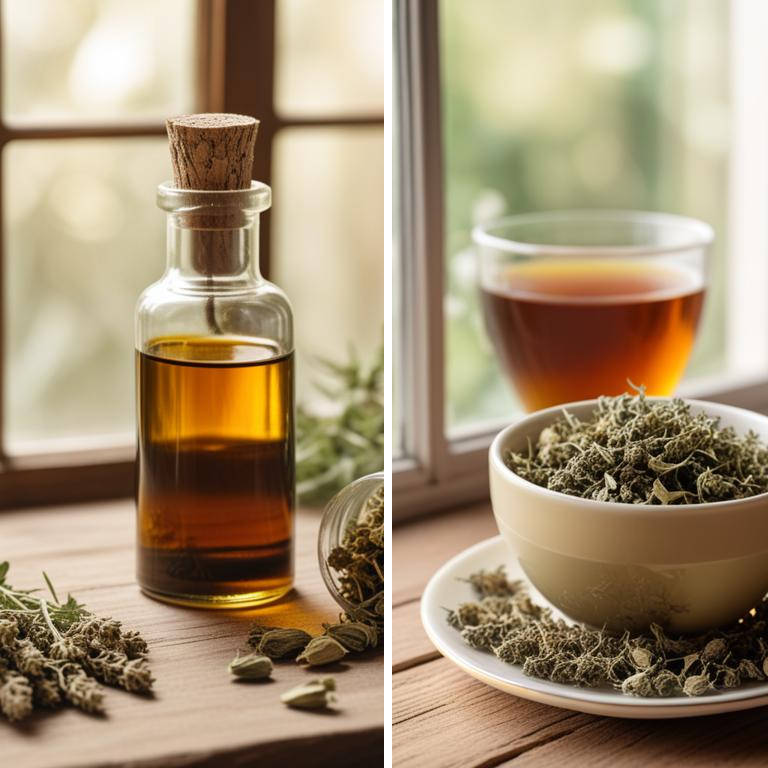
If you have irritable bowel syndrome (IBS), you might want to try herbal preparations to help manage your symptoms.
A decoction is a liquid extract made by steeping herbs in hot water. It's a good way to get the benefits of herbs like peppermint, which can help calm the stomach and reduce cramps. Herbal capsules are another option. They contain dried herbs that have been powdered and put into a gelatin or vegetable-based capsule. Capsules are easy to swallow and can be a convenient way to take herbs like ginger, which can help soothe digestive issues. For some people, suppositories might be a better choice. These are small, cone-shaped tablets that are inserted into the rectum to deliver herbs directly to the digestive system.
Suppositories can be made with herbs like aloe vera, which can help reduce inflammation and discomfort. Herbal tinctures are liquid extracts that are made by soaking herbs in a solvent, usually ethanol or glycerin. They're often used to make herbal remedies for IBS symptoms, and can be taken by mouth or added to food or drinks. Tinctures can be made with herbs like chamomile, which has anti-inflammatory properties that can help calm digestive issues. Finally, herbal teas are a popular way to consume herbs for IBS. They're usually made by steeping herbs in hot water, just like a decoction. Herbal teas can be calming and soothing, and can help reduce symptoms like bloating and gas.
Herbs like licorice root and fennel can be made into teas to help ease digestive issues.
Additional Resources:
What herbs are best avoided by those with irritable bowel syndrome?
If you have irritable bowel syndrome, it's best to avoid some herbs that can make symptoms worse.
For example, Cassia auriculata can cause stomach upset and diarrhea, which can be especially problematic if you already have IBS. Cinchona officinalis is another herb to steer clear of, as it can irritate the digestive tract and make cramps and bloating even more uncomfortable.
Aristolochia clematitis is a particular concern, as it can damage the kidneys and worsen digestive issues. Rauvolfia serpentina can also be problematic, as it can slow down bowel movements and make constipation worse. Lastly, Ephedra sinica should be avoided, as it can cause stomach pain, diarrhea, and even interact with medications you're already taking for IBS.
This means you should be cautious about using these herbs, as they can make your symptoms more challenging to manage.
FAQ
Are there any specific herbs that can prevent irritable bowel syndrome?
Some herbs may help manage irritable bowel syndrome symptoms.
Fennel seeds, for example, can ease bloating and discomfort. Peppermint oil can calm digestive issues and reduce cramping. Ginger has anti-inflammatory properties that may help soothe the gut.
These herbs may help alleviate symptoms, but their effectiveness can vary from person to person.
Is it safe to use herbal remedies for irritable bowel syndrome during pregnancy?
During pregnancy, it's best to be cautious with herbal remedies for irritable bowel syndrome.
Some herbs can stimulate the uterus and cause contractions, which is not safe for the baby. Other herbs might interact with medications or affect the baby's development.
It's essential to carefully research and understand the potential risks before using them.
Are there any herbs that can reduce the frequency of irritable bowel syndrome?
Some people find relief from irritable bowel syndrome symptoms by using herbs like ginger, peppermint, and fennel.
Ginger can help reduce inflammation and ease digestion, while peppermint oil can relax the muscles in the intestines.
Fennel seeds can also help with gas and bloating, potentially reducing symptoms of IBS.
Can i combine different herbal remedies for irritable bowel syndrome?
You can combine different herbal remedies for irritable bowel syndrome, but be cautious with how you mix them.
Some herbs, like peppermint and ginger, can help calm digestive issues. Others, like turmeric and chamomile, may ease inflammation and anxiety.
Just remember to start with small amounts and gradually increase as needed, to see how your body reacts.
Related Articles

Stomach Growling: Understanding Causes, Prevention, and Herbal Remedies
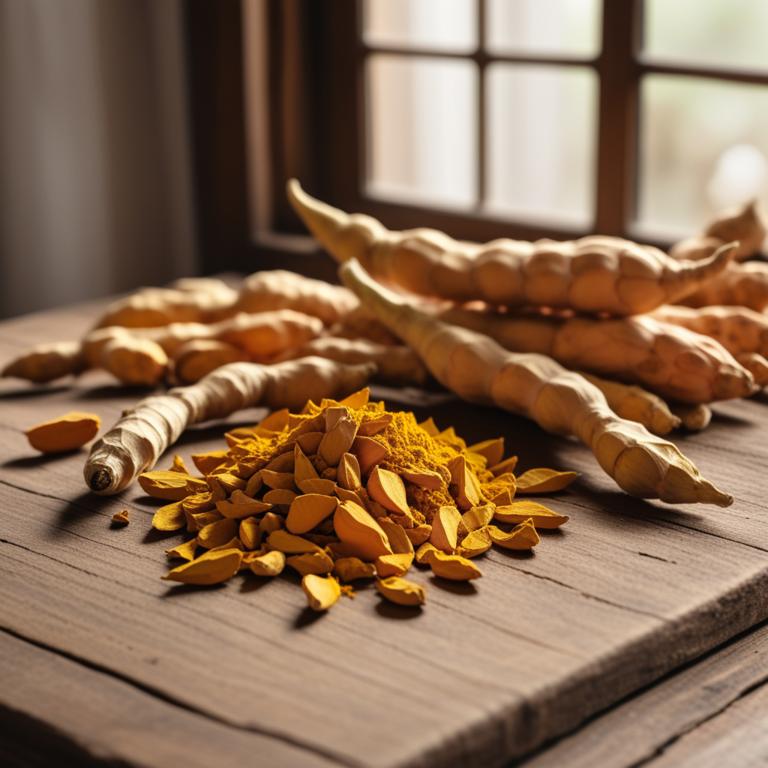
Cholecystitis: Causes, Symptoms, Medicinal Herbs, and Therapeutic Herbal Preparations
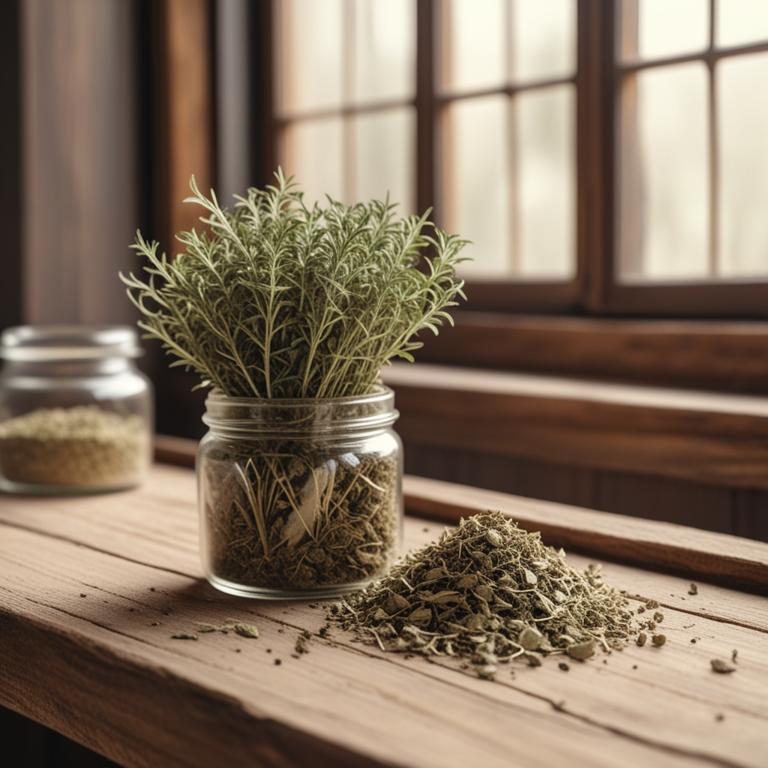
The Causes, Remedies, and Herbal Solutions for Bloating

Hemorrhoids Causes, Symptoms, and Natural Herbal Preparations

Hyperacidity and the Power of Herbal Remedies
